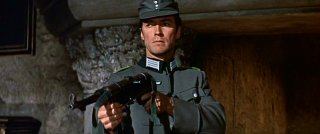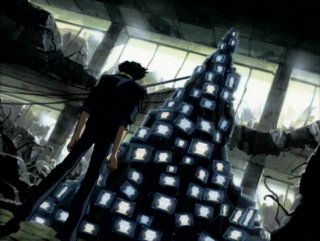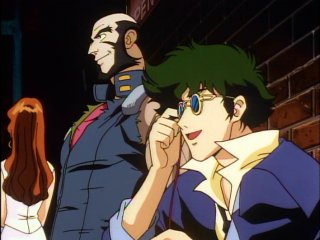As we near the end of 2007, some top 10 lists are beginning to appear. By January, most movie critics will have published their top 10, and most regular folks will scratch their head for at least half of the movies on an average top 10 list. When Oscar season rolls around and the best film nominations are announced, more head scratching occurs as people realize they haven’t seen any of the nominated films. Part of this has to do with distribution – of the lists I’ve seen so far, several movies haven’t even come out yet (even in limited release) and many never got much of a theatrical bow. I live near a pretty good city for movies, but due to a hectic schedule, I didn’t get much of a chance to make the trek into the city to see several of the leading favorite films. Even if I did, though, I’d bet that I still wouldn’t have seen a significant number of the critics’ best films of the year.
Why is it that the critics seem to be so different than audiences? I’ve always thought it had something to do with the amount of movies watched. After all, if you want most of the films released in a year, the typical Hollywood formulas probably start to become predictable and boring. When you only head out to the theater once a month, that doesn’t happen. Perhaps there’s also a feeling of smug superiority that a critic gets when they pick a non-mainstram or foreign movie. In a lot of cases, the movies picked are very somber affairs. Not the sort of thing you’d want to rewatch. I’m sure a lot of people see movies as a form of escapist entertainment, and those folks obviously don’t want to waste their time on something that will put them through a ringer. A professional critic has no qualms about seeing such a movie, while your average Joe might wonder why it’s worth the expense to see a pretentious, depressing movie.
This is all just speculation, of course, and I should note that I’m not immune to any of the things I mentioned above. While I don’t hold the typical Hollywood formula movies in as much disdain as the critics, I also don’t tend to see those films as being “great” either. If I ever get around to compiling a top 10 list, I’m probably going to include at least some non-mainstraim or foreign picks. And I watch enough movies that weighty stuff doesn’t scare me away.
I was thinking about this recently, and I remembered an anecdote from a Malcolm Gladwell talk a while ago. I listened to that talk when it came out, so my memory of it was a little hazy – it didn’t quite fit exactly into my thoughts on movie critics the way I thought, but it’s still relevant.
Asking people to think about what they want causes them to change their opinion of what they want. In fact, it screws up their ability to recognize what they want. This problem in Psychology is called the Peril of Introspection Problem – a lot of the research has been done by a guy named Tim Wilson at UVA and he once did this very simple experiment called, the Poster Test. And the poster test is that you’ve got a bunch of posters in the room and you bring some college students in and you say “pick any poster you want, take it home.” They do that. The second group is brought in and you say, “pick any poster you want, tell me why you want it, and then go home”
A couple months pass and he calls up the students and says, that poster you got a couple of months back, do you like it? And the kids in the first group, who didn’t have to explain their choice all still liked their poster. And the kids in the second group, who did have to explain, now hate their poster. And not only that, the kids who had to explain their poster picked a VERY different kind of poster than the kids who didn’t have to explain their poster. So, making people explain what they want change their preference and changes their preference in a negative way. It causes them causes them to gravitate towards something that they actually weren’t interested in the first place.
Now, there’s one little detail on this. There were two kinds of posters; there were these impressionist prints and then there were these photos of kittens hanging on bars that said, “Hang In There Baby!” And the students who were asked to explain their preference, overwhelmingly chose the kitten and the ones who weren’t asked to explain their choice, overwhelmingly chose the impressionist poster. Now – and they were happy with their choice, obviously – who could be happy with a kitten on their wall after 3 months.
Now why is that? Why when you ask someone to explain their preference do they gravitate towards the least sophisticated of the offering? Because it’s a language problem, right? You’re someone, you know that in your head you prefer the impressionist, but now you have to come up with a reason for your choice. And you don’t really have the language of why you like the impressionist photo. What you do have the language of which to say is, well, I do like the kitten cause I had a kitten when I was growing up. So, forcing you to explain something when you don’t necessarily have the vocabulary and the tools to explain your preference, automatically shifts you towards the most conservative and the least sophisticated choice.
Now, I remembered this incorrectly. I thought that the people who were required to explain their choices chose the impressionist paintings. If that was the case, the parallels with movie critics are obvious – their job is to explain what they’re seeing, so it would make sense that they chose more complex films, and it would be interesting to see if they’d like the movies they chose six months later. However, it was the other way around – the people who had to explain themselves picked the least sophisticated choice.
What this would seem to imply is that most people would prefer the arty films, but gravitate towards the more mainstream fare because they have to explain themselves (since most people see movies in groups, they need to convince others to see it, and thus that changes the dynamic). I would suspect that people who go to the movies alone would be less likely to see mainstream stuff and more likely to watch stuff off the beaten path.
But wait, if explaining why you like a movie or why you want to see a movie makes you want to see more conservative, less sophisticated movies, why do critics often go in the opposite direction? The answer is in Gladwell’s book, Blink. In short, the reason is that critics are experts, and experts aren’t a susceptible to this sort of thing. Gladwell references a study regarding jam. A bunch of experts ranked 44 different brands of strawberry jam according to very specific measures of taste and texture. A psychologst then took 5 divergent jams (the ones ranked 1, 11, 24, 32, and 44) and gave them to a group of college students. It turns out that the students’ ratings were rather close to the experts’ ratings. The correllation was 0.55, which is apparently very high for this sort of study.
What this says, in other words, is that our jam reactions are quite good: even those of us who aren’t jam experts know good jam when we taste it.
But what would happen if I were to give you a questionnaire and ask you to enumerate your reasons for preferring one jam to another? Disaster. … The overall correlation was now down to .11, which for all intents and purposes means that the students’ evaluations had almost nothing at all to do with the experts’ evaluations.
When the students were asked to explain their preferences, they ranked the #1 jam second to last. Why do we do this?
It’s that we simply don’t have any way of explaining our feelings about jam. We know unconsciously what good jam is: it’s Knott’s Berry Farm. But suddenly, we’re asked to stipulate, according to a list of terms, why we think that, and the terms are meaningless to us. Texture, for instance. What does that mean? We may never have thought about the texture of any jam before, and we certainly don’t understand what texture means, and texture may be something that we actually, on a deep level, don’t particularly care much about. But now the iea of texture has been planted in our mind, and we think about it and decide that, well, the texture does seem a little strange, and in fact maybe we don’t like this jam after all. … what happens is that we come up with a plausible-sounding reason for why we might like or dislike something, and then we adjust our true preference to be in line with that plausible-sounding reason.
Jam experts, though, don’t have the same problem when it comes to explaining their feelings about jam. Expert food tasters are taught a very specific vocabularly, which allows them to describe precisely their reactions to specific foods.
I’d love to see a study on this subject that actually tackled movies. Is viewing a movie more or less subjective than tasting jam? Who knows? There is certainly a very specific vocabularly about film, and critics are generally well versed in this. I wouldn’t be surprised if you got similar results on a study that focused on film. I’d also be really interested to see how writing reviews impacts a critic’s feelings on a film. Gladwell’s book suggests that a critic wouldn’t be as affected by this as a regular fella, but he’s also talking about jam experts. Movies have a specific vocabulary, but perhaps not a explicit as that of jam (Gladwell goes into excruciating detail in the book).
When I started this post, I thought it was a little simpler than it actually turned out to be. I think the above does help explain why critics’ choices are generally different than the mainstream, but there is still something missing. Other factors should probably also be considered. For instance, there are lots of great movies that are poorly made. Such movies are usually saved by storytelling. The filmmakers tell a story that connects on some level with the audience. If you’re a critic who is steeped in the technical details of filmmaking, your vocabulary requires to to say that such movies aren’t that great (and conversely, it probably inflates your evaluation of a technically brilliant film that doesn’t tell a good story).
There are a lot of other things that probably factor into movies (that don’t affect Jam or posters). For instance, I’ve often talked about how expectations color your reaction to a film. Marketing no doubt plays a big role in how successful a movie is at the box office, but not how much people really like the movie. For instance, one of the highest rated movies on IMDB is The Shawshank Redemption. This movie barely made $25 million at the box office and was considered a failure at the time of it’s release. But it built up a huge following on video and DVD. Everyone I know who has seen the movie has loved it. I’m sure there are lots of other factors too, like novelty or sentimentality. In the end, I don’t have a specific answer to why critics diverge so much from the mainstream, but I think the above probably has something to do with it…


